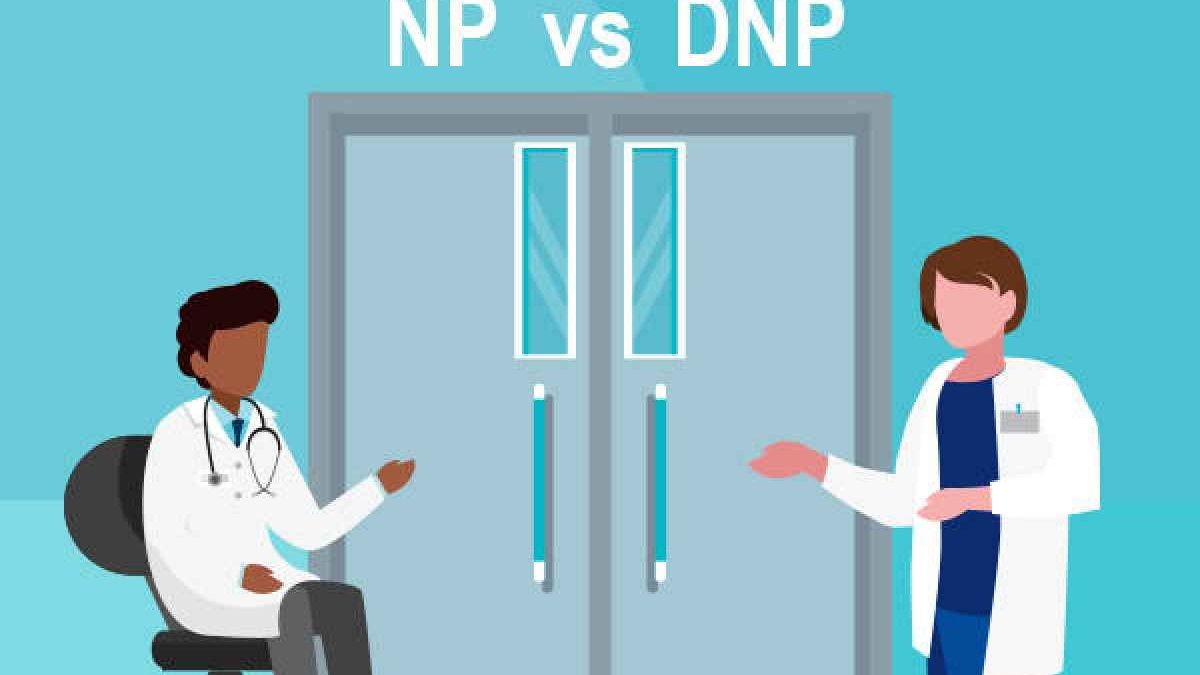The world of nursing offers a multitude of career paths, and two roles that often generate confusion are Doctor of Nursing Practice (DNP) and Nurse Practitioner (NP). While both are vital to the healthcare system, they serve different purposes and require distinct educational paths. In this article, we will explore the key differences between DNP and NP in nursing.
Table of Contents
1. Educational Background
- Nurse Practitioner (NP): NPs typically start their journey by earning a Bachelor of Science in Nursing (BSN) degree. After obtaining their BSN, they pursue a Master of Science in Nursing (MSN) with a specialization in a specific area of advanced practice nursing, such as family nurse practitioner (FNP) or pediatric nurse practitioner (PNP). NPs must pass a national certification exam related to their chosen specialty to become licensed.
- Doctor of Nursing Practice (DNP): DNPs, on the other hand, follow a more advanced educational path. They begin with a BSN or an MSN and then enroll in a DNP program, which typically requires a higher level of coursework and clinical training than an NP program. DNPs are focused on becoming advanced practice nurses with leadership and clinical expertise.
2. Scope of Practice
- Nurse Practitioner (NP): NPs are advanced practice nurses with a specialized focus on patient care. They can diagnose, treat, and manage various health conditions within their chosen specialty area. NPs often work in collaboration with physicians but can also provide care independently in many states, depending on scope-of-practice regulations.
- Doctor of Nursing Practice (DNP): DNPs, while they can have specialized clinical roles, are primarily focused on advanced nursing practice leadership, healthcare policy, and systems improvement. They are trained to lead healthcare teams, implement evidence-based practices, and drive quality improvement initiatives. DNPs may also have clinical responsibilities but often at a higher level, such as managing complex patient cases or supervising other healthcare providers.
3. Duration of Education
- Nurse Practitioner (NP): The educational path to becoming an NP typically takes less time than becoming a DNP. After earning a BSN, NPs complete an MSN program, which typically takes 2-3 years. However, the exact duration can vary depending on the program and the student’s pace.
- Doctor of Nursing Practice (DNP): Becoming a DNP requires a longer educational commitment. DNPs typically spend 3-4 years in a DNP program after earning their BSN or MSN. This extended education is designed to equip them with the leadership and practice skills needed to drive healthcare transformation.
4. Career Focus
- Nurse Practitioner (NP): NPs are primarily focused on providing direct patient care and promoting wellness within their chosen specialty area. They are frontline healthcare providers who diagnose and treat patients, prescribe medications, and provide holistic care.
- Doctor of Nursing Practice (DNP): DNPs, while they may still have clinical roles, are oriented toward leadership positions in healthcare organizations, academia, research, and healthcare policy. They work to improve healthcare systems, enhance patient outcomes, and drive evidence-based practices.
In conclusion, the differences between DNP and NP in nursing boil down to their educational paths, scope of practice, career focus, and the level of leadership and clinical expertise required. NPs primarily focus on direct patient care, while DNPs take on more comprehensive roles that encompass leadership, policy, and systems improvement. Both roles are crucial to the nursing profession and contribute significantly to the delivery of quality healthcare.
If you’re considering advancing your nursing career and are interested in pursuing a DNP, you can explore educational opportunities at https://academicpartnerships.uta.edu/healthcare-nursing-online-programs/dnp/. A DNP program can be an excellent choice if you aspire to make a broader impact on healthcare and nursing practice.

